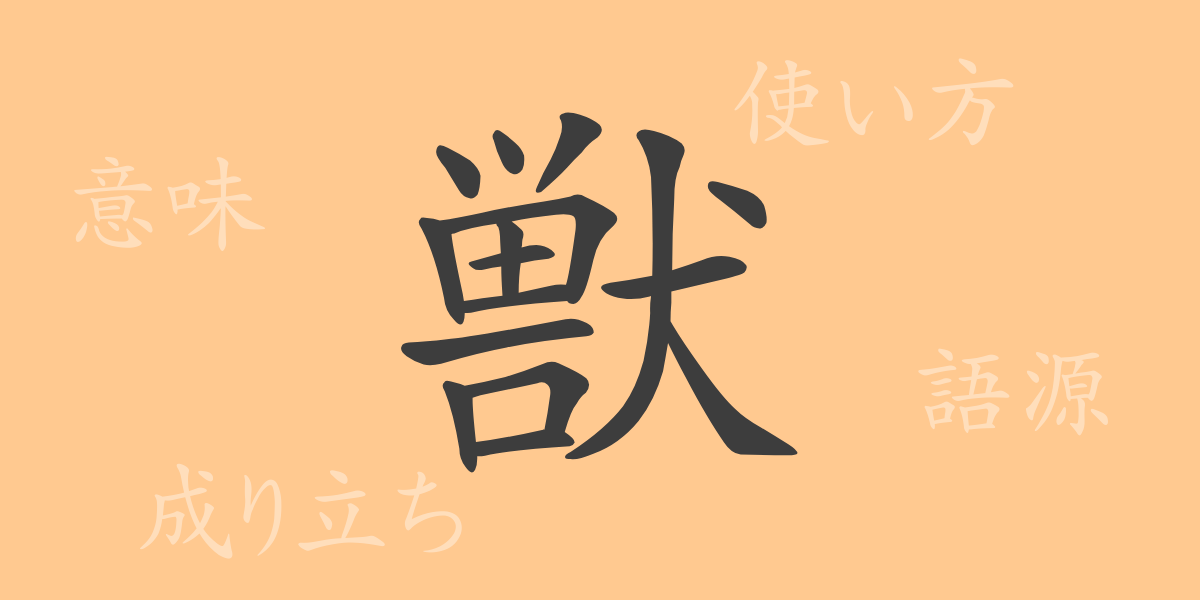In the rich world of Japanese expression, kanji symbolize the depth of the culture. Among them, the kanji “獣(じゅう, jū)” is widely used in our daily lives, literature, and even in proverbs. This article delves into the charm of the kanji “獣(じゅう, jū),” exploring its origins, meanings, uses, and its role in our everyday language.
獣(じゅう, jū)の成り立ち(語源)
The origin of the kanji “獣(じゅう, jū)” is ancient, with its existence confirmed in Chinese oracle bone script as a character related to animals. This character pictorially represents an animal, resembling a dog, with its mouth wide open. In ancient China, it was used to refer to wild animals and beasts.
獣(じゅう, jū)の意味と用法
In modern Japanese, “獣(じゅう, jū)” mainly refers to mammals, particularly wild mammals or animals living outside human habitation. Figuratively, it is also used to describe a barbaric person or someone with a ferocious nature.
獣(じゅう, jū)の読み方・画数・部首
The kanji “獣(じゅう, jū)” has the following characteristics:
- 読み方: 音読みでは「ジュウ(じゅう, jū)」、訓読みでは「けもの」「けだもの」と読みます。
- 画数: 「獣(じゅう, jū)」の画数は16画です。
- 部首: この漢字の部首は「犬(けん, ken)」部で、動物に関連する漢字を示す部首です。
獣(じゅう, jū)を使った熟語・慣用句・ことわざとその意味
There are many idioms, proverbs, and phrases that include “獣(じゅう, jū).” Here are a few examples:
- 獣医(じゅうい, jūi):A veterinarian, a doctor who specializes in animal care.
- 獣道(けものみち, kemonomichi):An animal trail. It also refers to a narrow path rarely used by people, or metaphorically, to ruthless methods.
- 人獣(じんじゅう, jinjū):Humans and beasts, distinguishing between humans and animals.
- 獣欲(じゅうよく, jūyoku):Animalistic desires, physical urges.
- 「獣には角、人には心」(けものにはつの、ひとにはこころ, kemono niwa tsuno, hito niwa kokoro):A proverb emphasizing the importance of the heart over appearances.
獣(じゅう, jū)についてのまとめ
The kanji “獣(じゅう, jū)” has evolved over time but still plays a crucial role in our language. As a term for animals and in figurative expressions, this kanji is used in various contexts in Japanese. By appreciating the presence of “獣(じゅう, jū)” in our language, we can cherish its rich expressions.

























